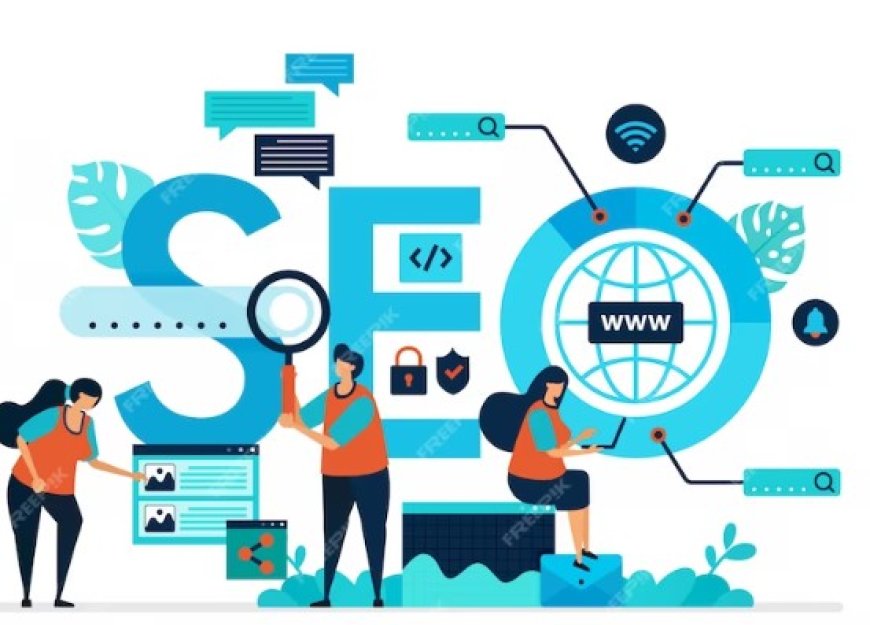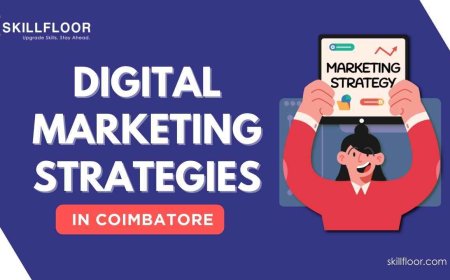The Landscape of SEO: What Trends to Expect in the Future
Stay ahead in the digital world with insights on future SEO trends. Explore the evolving landscape of SEO and be prepared for what lies ahead.

The landscape of SEO is ever-evolving, driven by advancements in technology and changes in user behavior. As businesses strive to maintain a strong online presence and attract organic traffic, staying ahead of emerging trends becomes paramount. This guide delves into the future of SEO, exploring key trends and shifts that are expected to shape the digital landscape. From the increasing importance of user intent and voice search to the impact of artificial intelligence and mobile-first indexing, this guide equips businesses with valuable insights to adapt their strategies and navigate the dynamic world of SEO successfully.
Explore the future trends and shifts in SEO
The purpose of this guide is to provide a comprehensive exploration of the future trends and shifts in SEO. By analyzing emerging developments in search algorithms, user behavior, and technological advancements, the guide aims to equip businesses with valuable insights and strategies to adapt and thrive in the evolving landscape of SEO. Understanding these future trends is crucial for businesses seeking to maintain a competitive edge, improve search visibility, and optimize their online presence to reach their target audience effectively.
User Intent and Semantic Search
User intent and semantic search are critical aspects of modern SEO. User intent refers to understanding the underlying purpose or goal behind a user's search query, and search engines now place greater emphasis on delivering relevant results that align with user intent. Semantic search goes beyond exact keyword matches and focuses on interpreting the context and meaning of words in a search query to provide more accurate and contextually relevant results. By optimizing content to cater to user intent and leveraging semantic search, businesses can improve search rankings, enhance user experience, and connect with their target audience more effectively.
Voice Search and Natural Language Processing
Voice search and natural language processing (NLP) are transforming the way people interact with search engines and devices. With the increasing popularity of voice-activated devices and virtual assistants like Siri, Alexa, and Google Assistant, voice search is becoming more prevalent. NLP allows search engines to understand natural language queries better, enabling more conversational and context-aware interactions.
As voice search continues to rise, businesses must optimize their content for voice-based queries and focus on long-tail keywords that match how people speak naturally. Incorporating NLP techniques into website content can also enhance user experience and engagement.
By embracing voice search and NLP, businesses can better cater to user preferences, improve search visibility, and stay ahead in the fast-evolving world of SEO.
Mobile-First Indexing and Accelerated Mobile Pages (AMP)
Mobile-first indexing and Accelerated Mobile Pages (AMP) are pivotal in the mobile-centric world of SEO. Mobile-first indexing means that search engines primarily use the mobile version of a website's content for indexing and ranking, making mobile-friendliness a crucial ranking factor.
AMP, on the other hand, is an open-source project aimed at improving mobile page loading speed and performance. It allows web pages to load almost instantly on mobile devices, creating a better user experience.
To succeed in SEO, businesses must prioritize mobile optimization, ensuring their websites are responsive and mobile-friendly. Implementing AMP can further enhance mobile page loading speed, boost user engagement, and positively impact search rankings.
Artificial Intelligence and RankBrain
Artificial Intelligence (AI) and RankBrain have revolutionized the landscape of SEO. RankBrain is a machine learning algorithm developed by Google to process and understand search queries better. It helps Google deliver more relevant search results by interpreting complex search queries and identifying patterns in user behavior.
AI, in general, plays a significant role in various aspects of SEO, from content creation and optimization to personalized search results. AI-driven tools assist in keyword research, content analysis, and competitor analysis, providing valuable insights for SEO strategies.
To leverage the power of AI and RankBrain, businesses must focus on creating high-quality, user-focused content that caters to search intent. By staying up-to-date with AI advancements and utilizing AI-driven tools, businesses can improve their search rankings, deliver personalized experiences, and enhance their overall SEO performance in an increasingly AI-driven world.
Featured Snippets and Rich Results
Featured snippets and rich results have emerged as prominent features in search engine results pages (SERPs), offering valuable opportunities for SEO. Featured snippets are concise summaries of information that directly answer user queries at the top of SERPs. They provide quick answers and enhanced visibility for websites.
Rich results, on the other hand, include various types of visually appealing and interactive search results, such as review stars, product images, recipes, and event details. Rich results make search results more engaging and informative.
To optimize for featured snippets, businesses should focus on providing concise and relevant answers to common user questions. Implementing structured data markup helps search engines understand content better, increasing the chances of earning rich results.
Video and Visual Content Optimization
Video and visual content optimization have become crucial in modern SEO as the consumption of multimedia continues to rise. Video content, in particular, has gained popularity, and search engines now prioritize video results in SERPs.
To optimize video content for SEO, businesses should focus on keyword-rich titles, descriptions, and tags, enabling search engines to understand the video's content better. Creating high-quality and engaging videos that resonate with the target audience is essential for improved user engagement and increased watch time.
Visual content optimization also involves optimizing images and infographics with descriptive alt text and file names to improve their visibility in image search results.
E-A-T and Trustworthiness
E-A-T stands for Expertise, Authoritativeness, and Trustworthiness, and it has become a significant factor in SEO and search engine rankings. Introduced by Google in its Search Quality Evaluator Guidelines, E-A-T is used to assess the credibility and quality of web content.
Expertise refers to the level of knowledge and expertise demonstrated by the content creator or the website. Authoritativeness relates to the reputation and authority of the website or content source in its industry or niche. Trustworthiness measures the reliability and accuracy of the information presented.
To improve E-A-T and trustworthiness, businesses should focus on producing high-quality, accurate, and well-researched content. Establishing authority through backlinks and mentions from reputable sources can also boost E-A-T scores.
Local SEO and Hyperlocal Targeting
Local SEO and hyperlocal targeting are vital strategies for businesses looking to connect with their nearby audience and dominate their local market. Local SEO focuses on optimizing online presence for location-based searches, ensuring businesses appear prominently in local search results.
Hyperlocal targeting takes local SEO a step further, narrowing the focus to target specific neighborhoods, cities, or even individual streets. It involves tailoring content and marketing efforts to cater to the immediate vicinity of a business location.
To excel in local SEO and hyperlocal targeting, businesses should optimize Google My Business listings, create location-specific landing pages, and obtain local citations. Utilizing local keywords and encouraging customer reviews can further enhance visibility in local search results.
The evolving landscape of SEO presents businesses with exciting opportunities to optimize their online presence and attract their target audience effectively. Understanding user intent, embracing voice search, and prioritizing mobile-first indexing are essential for staying ahead. Leveraging AI and RankBrain, targeting featured snippets and rich results, and optimizing video and visual content contribute to enhanced search visibility and user engagement. Emphasizing E-A-T and trustworthiness builds credibility, while local SEO and hyperlocal targeting connect businesses with nearby customers. By adapting to these future trends, businesses can navigate the dynamic world of SEO, achieve sustainable growth, and remain competitive in the digital age.



























































